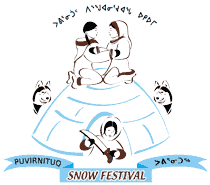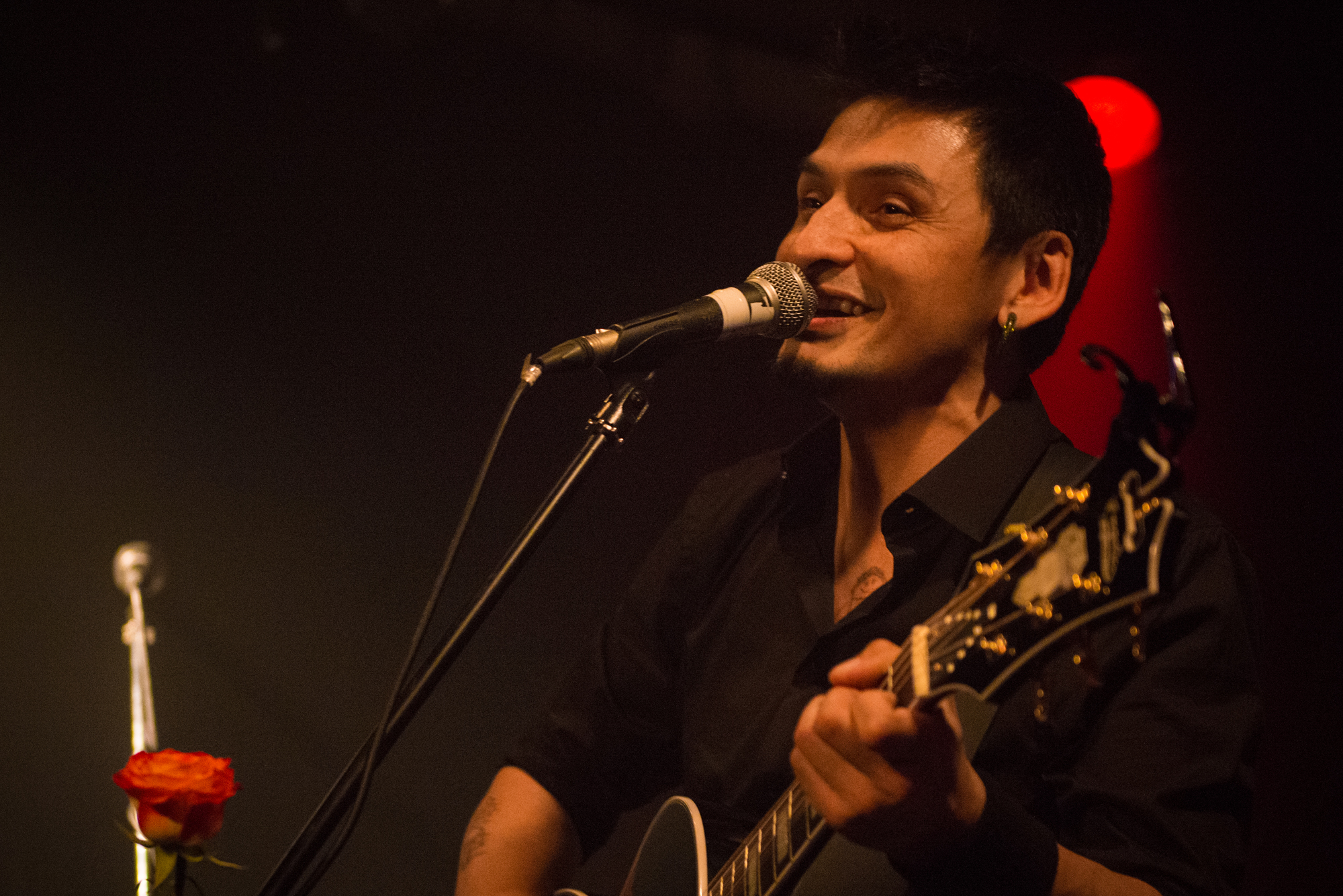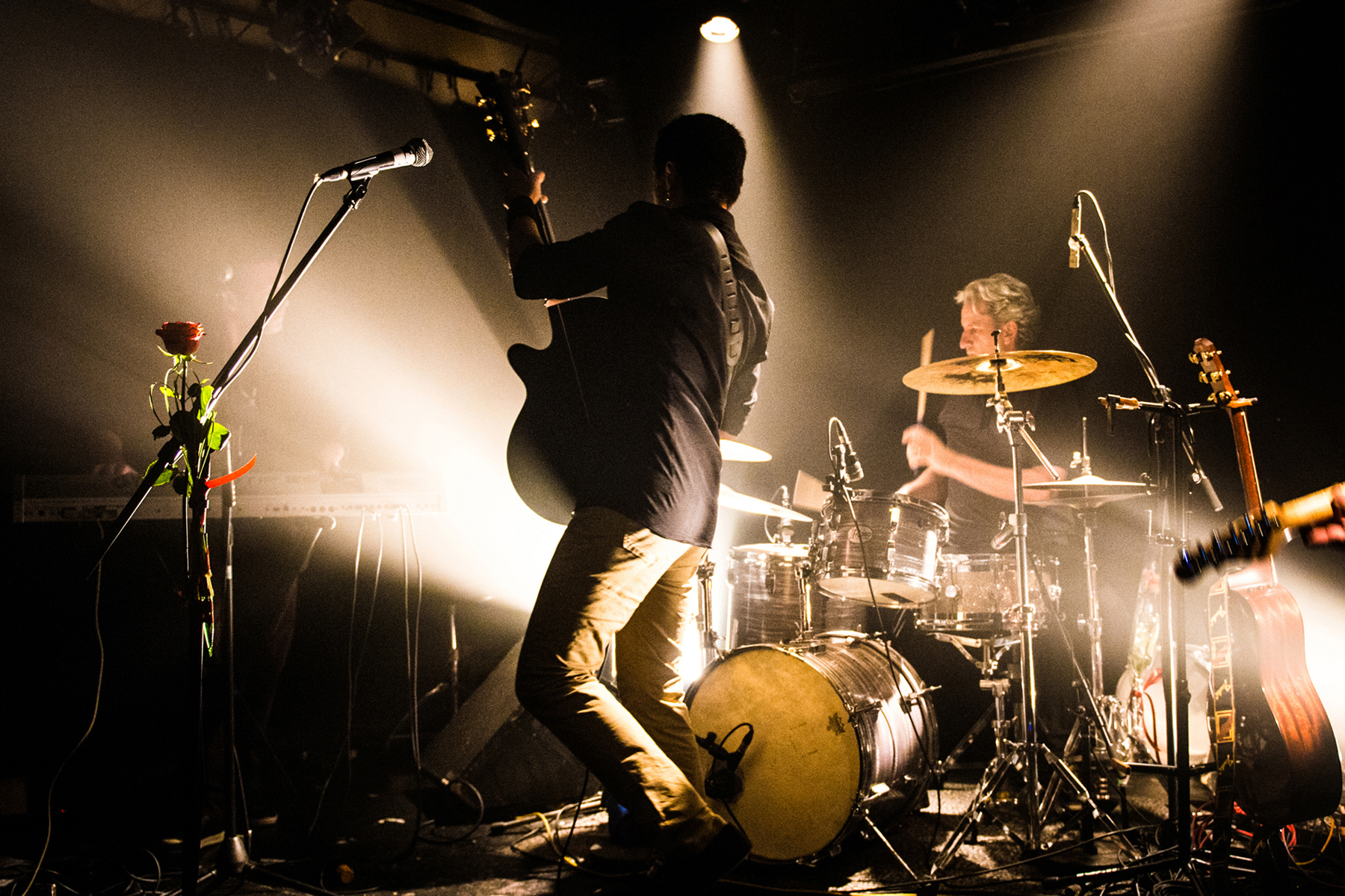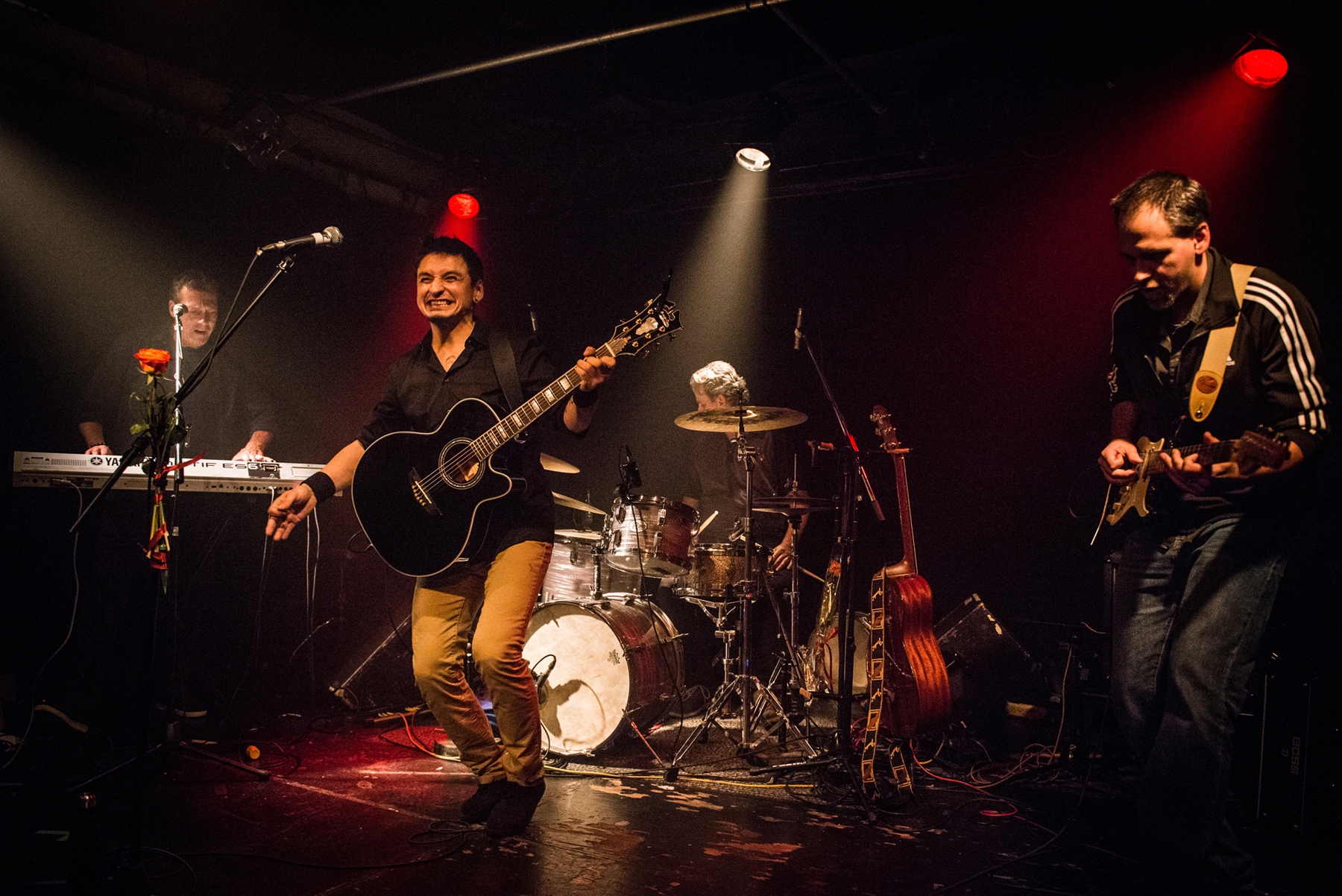ᓵᓕ ᑮᓚᓐ Charlie Keelan
ᐊᕐᕌᒎᒃ ᒪᕐᕉᒃ ᓈᒻᒪᓃᒃ ᑕᒫᑦ ᐳᕕᕐᓂᑐᖅ ᐱᖕᖑᐊᓂᖃᕐᑎᓯᓲᖅ ᑲᑎᕕᐅᑦᓱᓂ ᓄᓇᓕᖓ ᑕᑯᓐᓇᐅᔮᕐᑎᓯᔨᓄᑦ ᐱᓯᒪᑦᓱᑎᒃ ᐊᒥᓱᓂᑦ ᐃᓄᐃᑦ ᓄᓇᖏᓐᓂᑦ ᐊᒻᒪᓗ ᐊᑦᔨᒌᖕᖏᑐᑦ ᐱᖕᖑᐊᕈᑕᐅᑦᓱᑎᒃ ᐱᓕᐅᑎᑎᑕᐅᑦᓱᑎᓪᓗ ᐆᑦᑑᑎᒋᓗᒍ ᐊᖏᕐᐹᒥᒃ ᐃᓄᑦᓱᓕᐅᕐᑐᑦ ᐅᕝᕙᓘᓐᓃᑦ ᓴᓇᐅᒐᕐᓯᑎᐅᓂᕐᐹᖅ. ᑕᕝᕙᓂ ᐊᕐᕌᒍᒥ, ᐃᖕᖏᑎ ᐊᒻᒪᓗ ᐃᖕᖏᕋᑦᓴᓂᒃ ᐊᓪᓚᑎᐅᑦᓱᓂ ᑭᓪᓕᓂᕐᒥᐅᒍᓯᒪᔪᖅ, ᖁᐊᖅᑕᒥᕙᓪᓗᖅ ᐊᒻᒪᓗ ᑲᖏᕐᓱᐊᓗᑦᔪᐊᒥᕙᓪᓗᖅ ᐱᕈᕐᓴᓯᒪᔪᖅ, “ᓵᓕ” ᑮᓚᓐ, ᐱᖕᖑᐊᕆᐊᕐᑐᓯᒪᖃᑕᐅᓛᕐᑐᖅ ᑖᑦᓱᒧᖓ ᓇᓂᓕᒫᖅ ᖃᐅᔨᒪᔭᐅᓕᕐᑐᒧᑦ ᐱᖕᖑᐊᓂᕐᒧᑦ. ᓵᓕ ᐊᐱᕐᓲᔭᕐᑕᐅᓚᐅᔫᖅ ᐊᐅᒻᒫᒋᕝᕕᒧᑦ ᐊᒻᒪᓗ ᐅᖃᐅᓯᖃᓚᐅᔪᑦᓱᓂ ᐅᐱᒪᓂᕐᒥᒃ, ᐅᖃᐅᓯᕐᒥᒃ ᐊᒻᒪᓗ ᑕᑯᒥᓇᕐᑐᓕᐅᕐᓂᒥᒃ ᑕᑯᓐᓇᐅᔮᕐᑎᓯᒍᑎᓂᓪᓗ.
“ᐃᓄᑦᑎᑐᑦ ᖃᓪᓗᓈᕐᑎᑐᓘᓐᓃᑦ ᐃᖕᖏᖑᐊᕋᑦᓴᒥᒃ ᐊᓪᓚᓂᖅ ᖃᓄᐃᓂᐊᕐᒪᖔᑦ ᑭᖑᓂᖓᒍᑦ ᑭᓯᐊᓂ ᖃᐅᔨᒪᓇᕐᑑᔮᕐᑐᖅ. ᑐᓴᕐᓂᔮᕐᑎᓯᒍᑎᒃ ᖃᓄᐃᓕᒍᒪᒻᒪᖔᑦ. ᖃᓄᖅ ᐃᑉᐱᒍᓱᒻᒪᖔᑦ, ᖃᓄᖅ ᓂᐱᖃᕐᒪᖔᑦ, ᑕᐅᕐᓰᑕᕐᓂᒥᒍᑦ. ᑭᓯᐊᓂ ᐃᓚᖓᓐᓂ ᖃᓪᓗᓈᕐᑎᑑᕐᖄᓯᒪᔪᑦ ᐃᓄᑦᑎᑑᕐᑐᖑᕐᑕᐅᓲᒍᒻᒥᔪᑦ ᐅᕝᕙᓘᓐᓃᑦ ᐃᓄᑦᑎᑑᕐᓯᒪᔪᑦ ᖃᓪᓗᓈᕐᑎᑑᕐᑐᖑᕐᑕᐅᓱᑎᒃ. […] ᓴᐱᖃᖕᖏᑐᖓ ᖃᓪᓗᓈᕐᑎᑑᕐᖄᓯᒪᔪᖅ. ᑖᑦᓱᒥᖓ ᐃᖕᖏᕆᐊᑕᒫᑦ ᐃᓅᒋᐊᒥᒃ ᐊᓕᐊᓲᒍᔪᖓ. ᐃᑉᐱᒍᓱᑦᓯᒪᔪᖓ ᐃᓅᓯᕋ ᐊᓕᐊᓇᖕᖏᑐᒨᕐᑕᑐᐃᓐᓇᑎᓪᓗᒍ, ᑫᕕᑐᐃᓐᓇᑑᔮᕐᓱᓂ, ᐱᔭᕐᓃᑑᓯᒪᔪᖅ ᑲᔪᓯᒍᓐᓇᐅᑎᑦᓴᒥᒃ ᓄᑭᑖᕋᓱᐊᕆᐊᖅ. ᐊᒻᒪᓗ ᓯᕗᓪᓕᐹᑦ ᐅᖃᐅᓰᑦ ᐃᖕᖏᕈᓯᓐᓂ ᑌᒣᑦᓯᒪᓂᕐᓃᕙᖓ ᓇᓗᓀᕐᓯᒋᐊᕐᑑᔮᕐᑐᑦ ᐃᓂᕐᑑᒪᓂᐊᖕᖏᓇᒪ, ᐅᕝᕙᓘᓐᓃᑦ ᑲᖕᖑᓱᓚᖓᖕᖏᓇᒪ ᑕᑯᑎᑦᓯᒋᐊᒥᒃ ᓇᓪᓕᓂᕐᒥᒃ ᐊᒻᒪᓗ ᓈᒃᑭᒍᓱᓐᓂᒥᒃ ᕿᑐᕐᖓᓅᕙᖓ ᐊᓕᐊᒻᒪᕆᖃᑦᑕᓯᒪᒐᒪ ᑕᑯᒍᓐᓇᓯᑐᐊᕋᒃᑭᑦᑦ ᑕᒫᑦ. ᑕᕝᕙᓂ ᐃᓅᓯᕐᒪ ᐃᓚᖓᓐᓂ, ᐋᖓᔮᓐᓇᑐᕐᑑᒪᓯᒪᔪᖓ ᐊᒻᒪᓗ ᐃᒥᐊᓗᒻᒪᕆᑉᐸᓱᖓ. ᑌᒣᑦᑑᓱᖓᓗ ᑕᕐᓂᕋ ᐅᕙᓐᓂᒃ ᕿᒫᑐᐃᓐᓇᓯᒪᔫᔮᕐᑐᖅ. ᐃᒻᒥᓂᒃ ᐊᓯᐅᔨᓯᒪᔪᖓ, ᐃᒻᒥᓂᒃ ᐃᓕᑕᕐᓯᖃᔦᕐᓯᒪᔪᖓ ᑭᓇᐅᓂᕐᓂᓗ, ᓇᒧᖕᖓᕋᓱᐊᕐᒪᖔᒻᒪᓗ. ᐋᖓᔮᑉᐸᒍᓐᓀᓱᖓ ᓱᓐᓂᒪᖔᒻᒪ ᓱᓕ ᑐᑭᓯᒐᓱᐊᕐᐸᑐᖓ. ᐊᕐᓱᕈᓐᓂᖅ, ᐋᓐᓂᐊᓂᖅ, ᑭᓯᐊᓂ ᓯᕗᓂᕐᒥ ᓂᕆᐅᑦᓯᐊᓂᖅ, ᓲᖑᓯᓂᖅ ᐱᔪᓂᒃ ᐃᖕᖏᕈᓯᒥᑦ ᑖᒃᑯᓇᓃᑦᑐᑦ. ᑕᒐ, ᐱᕕᑦᓴᖃᓕᕐᑐᖓ ᐊᓕᐊᓇᕐᑐᓂᒃ ᓄᐃᑦᓯᒍᓐᓇᓕᕐᓱᖓ, ᐃᓅᒋᐊᒥᒃ ᐅᐱᒪᓇᕐᑐᓂᒃ. ᐊᓕᐊᑉᐳᖓ ᐃᓅᒋᐊᒥᒃ, ᐱᑦᓯᐊᕈᒪᕗᖓ, ᐱᑦᓯᐊᓂᕐᓴᐅᒍᒪᕗᖓ. ᓈᒻᒪᑐᓂᒃ ᐱᐅᓯᖃᕈᒪᕗᖓ. ᐊᒥᓱᓂᒃ ᐃᖕᖏᕈᓯᓂᒃ ᐊᓪᓚᑕᕕᓂᕐᓃᕙᖓ ᕿᒥᕐᕈᓱᒋᑦ, ᐊᒥᓱᕕᑦᓱᖓ ᐃᒻᒥᓄᑦ ᐅᖃᐅᑏᒐᓱᐊᕐᓯᒪᔪᖓ. ᖃᐅᔨᒪᔫᔮᕐᓱᖓ, ᓱᖁᑎᑦᓴᑑᔮᕐᓇᖓᓘᓐᓃᑦ ᓈᓚᒋᐊᒥᒃ ᐃᖕᖏᑕᕐᓃᕙᖓ. ᑌᒣᒻᒪᑦ, ᐋᐊ, ᐅᑉᐱᕆᔭᖃᕐᐳᖓ ᐃᑲᔪᕐᓯᔭᐅᓯᒪᒋᐊᒥᒃ ᐃᓄᑦᑎᑐᑦ ᐊᓪᓚᓱᖓ.”
“ᖃᓪᓗᓈᑦ ᓄᓇᖓᓂᒥᐅᒍᓕᕐᓱᖓ, ᖃᐅᔨᓯᒪᔪᖓ ᐊᓯᐅᔨᓕᕆᐊᒥᒃ ᐃᓄᑦᑎᑐᑦ ᐅᖄᑦᓯᐊᕈᓐᓇᓂᕐᓂᒃ, ᐊᒻᒪᓗ ᐅᖃᐅᓯᖏᓐᓂᒃ ᐳᐃᒍᓕᕐᓱᖓ. ᐱᒻᒪᕆᐅᕗᖅ ᐅᖃᐅᓯᕐᓃᕕᑦ ᑎᒍᒥᐊᓪᓚᕆᒋᐊᖃᕆᐊᖅ, ᓴᕐᕿᑎᑦᓯᓲᖅ ᐅᐱᒪᓂᕐᒥᒃ ᐊᒻᒪᓗ ᓲᖑᓂᕐᒥᒃ ᐊᒻᒪᓗ ᐱᔪᑦᓴᐅᔮᕐᑎᓯᒍᓐᓇᓱᓂ ᐃᓕᓐᓂᒃ. ᐊᓯᑦᔨᕋᓱᐊᕆᐊᒥᒃ ᐅᐸᓗᓗᐊᕐᑐᖃᓚᐅᕐᓯᒪᑦᔭᖏᓪᓚᖅ, ᐅᖃᐅᓯᕐᓃᕕᑦ ᐃᓕᑦᓯᒐᓱᐊᕆᐊᒥᒃ ᐅᐸᓗᐊᕐᖃᔭᖕᖏᑐᑎᑦ (ᐅᖄᑦᓯᕈᓐᓇᓯᓗᒍ ᑐᑭᓯᑦᓯᐊᕈᓐᓇᓯᓗᒍ). ᐱᑦᔪᑎᑖᕐᓇᑐᖅ ᐊᒻᒪᓗ ᓄᑖᒥᒃ ᐱᕙᓪᓕᐊᑎᑦᓯᒍᒪᓯᓗᑎᑦ ᐃᓅᓯᕐᒥᒃ ᐊᑐᖔᓯᓗᒍ. ᓂᐅᕕᕐᖃᒥᓚᐅᔪᔪᖓ ᐃᓄᑦᑎᑐᑦ ᐅᓕᕐᓀᓯᒍᑎᓂᒃ ᐊᕙᑕᒃᑯᓂᑦ ᐊᓕᐊᓚᐅᔪᔪᖓ ᑖᒃᑯᓂᖓ ᐱᑖᕆᐊᒥᒃ. ᐃᓪᓘᑉ ᐊᐳᑎᐅᑉ ᑕᕐᕋᖓᑎᑐᑦ ᓄᐃᑕᑐᐃᓐᓇᓚᖓᓕᕐᑐᑦ, ᑌᒫᑦᓭᓇᕐᑕᐅᖅ ᐅᖃᐅᓯᖅ.”
“ᐃᓗᒡᒍᓯᖃᕐᑐᒍᑦ ᓱᑲᑦᑐᒥᒃ ᐊᓯᑦᔨᑐᑲᓪᓚᒋᐊᖃᕐᓯᒪᔪᒥᒃ ᐅᐸᓗᐃᔭᐅᓐᓇᓯᒪᒻᒪᑦ. ᐋᖓᔮᑉᐸᒍᓐᓀᕈᕕᑦ ᐱᓪᓚᕆᑦᑐᓂᓪᓗ ᓵᖕᖓᓯᖔᓯᓗᑎᑦ ᐊᒻᒪᓗ ᐊᖏᕐᓯᒪᑐᐃᓐᓇᓯᓗᒋᑦ ᐊᑑᑎᓯᒪᔭᑎᑦ, ᓄᑭᑖᓚᖓᔪᑎᑦ ᐃᒣᓕᒍᓐᓇᓯᓗᑎᑦ, ᑕᒐ, ᓱᒍᓐᓇᐳᖓ? ᐊᓪᓚᓗᖓ, ᓄᐃᑎᕆᓗᖓ, ᑕᑯᒥᓇᕐᑐᓕᐅᕐᓗᖓ ᑐᓴᕐᓂᔮᕈᑎᓕᐅᕐᓗᖓ. ᓄᓇᓕᐊᕐᐸᓗᓯ ᓄᓇᓖᑦ ᕿᒪᓪᓗᒋᑦ ᐱᓱᖕᖑᐊᑐᐃᓐᓇᕋᓗᐊᕈᕕᑦ (ᑭᓯᐊᓂ ᑌᒪᖕᖓᑦ ᐊᑐᐃᓐᓇᐅᕙᒋᐊᖃᕐᑐᑎᑦ ᐃᒻᒥᓂᒃ ᐅᖑᒪᐅᑎᑦᓴᓃᕕᑦ ᕿᒣᕙᒍᓐᓀᓗᑎᑦ).’’
À tous les deux ans, Puvirnituq accueille son célèbre festival des neiges qui réunit d’innombrables spectacles de musique ainsi qu’une multitude de compétitions et de concours de toutes sortes, comme celui du plus grand inukshuk ou de la meilleure sculpture sur pierre. Cette année, ce festival extrêmement populaire auprès des Nunavimmiut accueillera sur sa grande scène de spectacle Charlie ‘’Saali’’ Keelan, un chanteur originaire de Killiniq qui a majoritairement grandi à Quaqtaq et Kangiqsualujjuaq. Saali a été interviewé par Aumaaggiivik et il a parlé de fierté, de langue et d’art.
«L’écriture d’une chanson en inuktitut ou en anglais dépend de la façon qu’elle sort. Qu’est-ce que la musique veut dire. Comment ça se ressent, comment ça sonne mélodiquement. Ça arrive que je commence une chanson en anglais et que je la termine en inuktitut ou vice versa. [… ] Sapiqangitunga a d’abord été écrite en anglais. Chaque fois que je chante cette chanson, je suis tellement heureux d’être encore en vie. J’ai l’impression que ma vie se déroulait dans un cercle négatif, c’était difficile d’avoir la force de continuer. Et dès les premiers mots prononcés dans la chanson, je voulais transmettre que je n’aurai pas peur, je n’aurai pas peur de montrer de l’amour et de l’affection à mes enfants, car j’ai de la chance de les voir chaque fois que je peux. Durant cette période de ma vie, je prenais beaucoup de drogue et d’alcool. Ce qui me donne l’impression que mon âme s’était éloignée de moi. Je me suis perdu. Je ne pouvais pas reconnaître qui j’étais, où j’allais. J’essaie toujours de donner un sens à cette période avec un esprit sobre. La lutte, la douleur, l’espoir, la force qui vient de cette chanson sont là. J’ai maintenant l’occasion d’apporter quelque chose de positif, de quoi être fier en tant qu’Inuk. Je suis heureux d’être en vie. Je veux être bien, être meilleur, faire les bonnes choses. En regardant de nombreuses chansons que j’ai écrites, il y a eu plusieurs fois où j’essayais de me parler à moi-même. Comme si je le savais, mais comme si je n’avais pas envie d’écouter ce que je chantais. Alors, oui, je pense que ça a aidé d’écrire en inuktitut.»
«En vivant dans le Sud, je me suis rendu compte que je perdais les mots et la douceur de parler en inuktitut. Il est très important de garder sa langue maternelle car cela apporte fierté, force et motivation. Comme il n’est jamais trop tard pour changer, il n’est jamais trop tard pour apprendre à parler sa langue ou mieux la parler. Ça donne un objectif et une nouvelle motivation pour faire plus dans la vie. J’ai récemment acheté un dictionnaire d’inuktitut auprès d’Avataq et j’en suis très heureux. Tout comme les ombres de l’iglu sont là pour rester, la langue l’est aussi.»
«Nous avons une culture qui a brusquement changé. Quand vous restez sobre et faites face à la réalité et acceptez ce que vous avez vécu, vous aurez l’énergie de dire : Ok, qu’est-ce que je peux faire? Écrivez, créez, faites de l’art. Sortez du village, allez sur la toundra, même pour une simple promenade (Mais soyez toujours préparés et apportez quelque chose pour vous protéger).
Every two years, Puvirnituq hosts its snow festival which is gathering performing artists coming from many Inuit territory as well as various games and contests like the largest inukshuk or the best stone carving. This year, singer and songwriter originally from Killiniq, who grew up mostly in Quaqtaq and Kangiqsualujjuaq, Charlie “Saali” Keelan, will be among the artists performing in this famous Nunavimmiut festival. Saali was interviewed by Aumaaggiivik and he talked about pride, language and art.
‘’Writing a song in Inuktitut or English seems to depend on how it comes out. What the music wants to say. How it feels, how it sounds, melodically. But there have been occasions where the lyrics started off in English and ended up being in Inuktitut or vise-versa. […] Sapiqangitunga was starting off in English. Every time I sing that song, I am so happy to still be alive. It feels like my life was going in a negative circle, round and round, it was hard to have the strength to keep going. And the first words I say in the song are trying to convey that I will not be afraid, or be shy to show love and affection to my children because I was so happy to see them every time I had a chance. In this period of my life, I was taking a lot of drugs and alcohol. Which just feels like my soul got away from me. I lost myself, I couldn’t recognize who I was, where I was going. I am still trying to make sense of that whole time period with a sober mind. The struggle, the pain, but the hope, strength that comes from that song is there. Now, I have the opportunity to bring something positive, something to be proud of as an Inuk. I am happy to be alive, I want to do well, be better. Do the right things. Looking back at many songs I have written, there were many times where I was trying to speak to myself. Like I knew, but as though I didn’t care to even listen to what I was singing. So, yes, I believe it helped a lot to have written it in Inuktitut.”
“Living in the south, I realized I was losing the smoothness of speaking Inuktitut, and words. It’s very important to hold on tight to your mother tongue, it brings pride and strength and motivation in yourself. As it’s never too late to change, it’s never too late to learn to speak your language (better). It gives you a purpose and new drive to do more in life. I bought an Inuktitut dictionary recently from Avataq which I was very happy to get. Just like the shadows of the iglu are here to stay, so is the language.”
“We have a culture that had to adapt very quickly to the changes that happened abruptly. When you stay sober and face reality and accept what you have gone through, you will have the energy to say, ok, what can I do? Write, create, do art. Go out of the village to the land even for a walk (But always be prepared and bring something to protect yourself).’’
iTune Store
Spotify
Puvirnituq Snow Festival
ᐊᓪᓚᑐᖅ | Texte de | Text by: Olivia Lya Thomassie

ᐊᑦᔨᓕᐊᕕᓂᕐᒥᓂᒃ ᐊᑐᕐᑕᐅᑎᑦᓯᓯᒪᔪᑦ / Crédits photos / Photos credits: Sebastien-Charles Boitel




